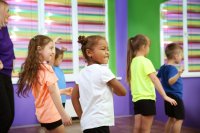17 Ways to Help Students With ADHD Concentrate
Teacher-tested ideas to help students quietly fidget.
Research shows that students with attention-deficit/hyperactivity disorder (ADHD) can concentrate better when they’re allowed to fidget. But what if this becomes a distraction for the rest of the class? We asked our readers about this issue on Facebook and received hundreds of comments from teachers, parents, and students with great ideas for letting students quietly fidget, and here are some of our favorites:
1. Squeeze Balls
Squishy balls, stress balls, koosh balls, hand exercisers... there are dozens of objects that can be squeezed quietly. Teacher tip: Make sure that kids use them under their desks for minimal distractions to others. Fun activity idea: Fill balloons up with different items (seeds, Play-Doh, flour, etc.) to squish.
2. Fidgets
Fidgets are small objects that help keep students’ hands occupied. You can buy these on Amazon or use objects like beaded bracelets or Rubik’s Cubes. Teacher tip: Avoid flashy objects like fidget spinners, which can be a distraction to other students.
3. Silly Putty
Silly Putty, Play-Doh, or Sticky Tack can also keep students’ hands occupied.
4. Velcro
Tape a strip of the rough side of Velcro under the student’s desk. It gives them something to touch. Many other objects can work, such as emery boards or straws.
5. Gum or Chewable Necklaces
Chewing gum can help keep some ADHD students focused. In no-gum classrooms, necklaces with chewable pieces can also work. You can also wrap airline tubing or rubber bands at the ends of pencils for students to chew.
6. Doodling
Doodling can help many students focus, not just ones with ADHD. Some students also benefit if they can draw during storytime or a lesson.
7. Background Noise/Music
A fan in the back of the room can help some students focus. Letting them listen to music on headphones (as long as it doesn’t interfere with what’s happening in class) can also help. One teacher had success with an aquarium in the back of the room—students liked hearing the calming swish of the water.
8. Chair Leg Bands
Tie a large rubber band (or yoga band) across both front legs of the chair for students to push or pull against with their legs.
9. Bouncy Balls
Also known as yoga balls, stability balls, or exercise balls. These are potentially great for all students, not just ones with ADHD.
10. Swivel Chairs
Kids can twist a little bit from side to side. A rocking chair also works.
11. Wobble Chairs
Similar to swivel chairs or disk seats, these chairs let students rock within their seats. Teacher tip: Don’t let students wobble too much—they may fall off!
12. Disk Seats
These sit on a chair and allow students to rock in their seats, which is not as dangerous as rocking the entire chair. Cushions can also work.
13. Standing Desks
Great for all students, not just ones who need to fidget. Learn how students brought standing desks into their classroom in “Using Stand Up Tables in the Classroom.” If it’s within your budget, you can also use treadmill desks.
14. Desks with Swinging Footrests
A built-in footrest can help reduce the noise that comes with foot tapping.
15. Stationary Bikes
Putting a stationary bicycle at the back of the classroom is a great way to help students be active.
16. Classroom Space for Moving Around
Clear an area at the side or back of the room to let students stand, stretch, dance, pace, or twirl.
17. Flexible Work Locations
Students don’t have to do their learning at their desk—they can work at the windowsill or move from one desk to another. Having different learning stations can benefit all types of students. For ideas on setting up your classroom, check out “7 Learning Zones Every Classroom Must Have.”
Many thanks to our Facebook commenters who contributed to this list:
Amanda Becker, Amanda Nagy Magee, Angela L. García, Angela Peery, Barbara Linkus, Beverly Becker Wood, Bonnie Reeves, Brian Gagnon, Cherish A Eagen, Crissy Fleetwood, Debbi Allred, Don Myers, Dot McGee, Fin Scott, Helen Zukauskas, Holly Zuidema, Hollyann Moriarty Pierce, Jana Colvin, Jane Reed, Jennifer Preuss Schmidt, Jim Hansen, John N Kelly Sefcik, Judith Anderson, Katharine Healey Dalton, Laura Maslin Bradley, Laura Miranda, Laurie Baumbach Krivitz, Lindsay Russell Hyland, Lissa L. Rapoport, MaLinda Luker, Mandy Eller, MaryAnne Finch, Matt Winkler, Moe Margetts, Olivia Christine, Pat Melvin, Risa Blum Mendelson, Robyn Gunther, Sandra Churchwell Voss O'Brien, Sarah Holmes, Shannon Costella, Sylvia Morales Lopez, Tana Williamson, Tricia Musson Wright, Valerie Wilmot, and Virgil Miller
